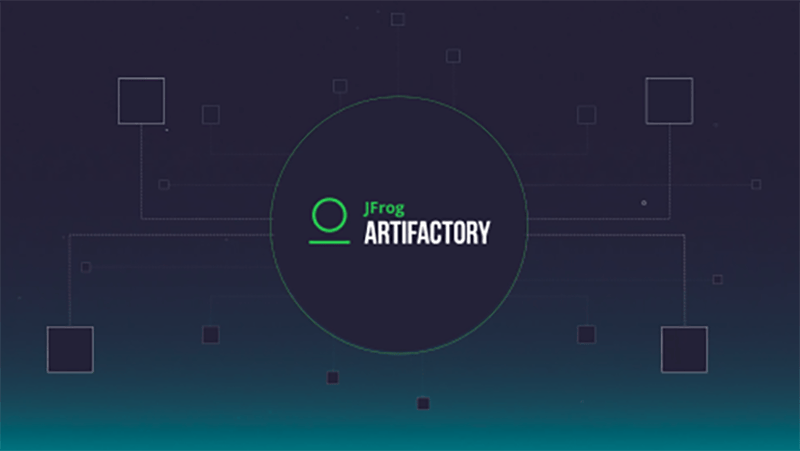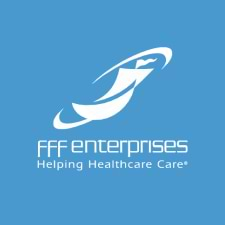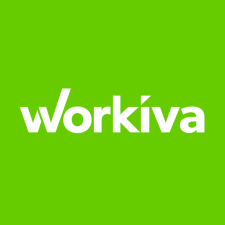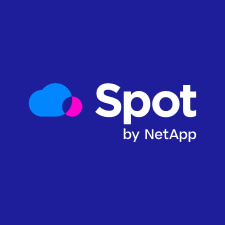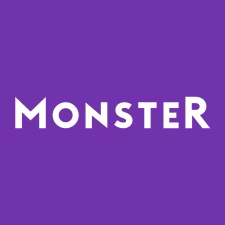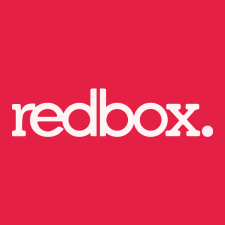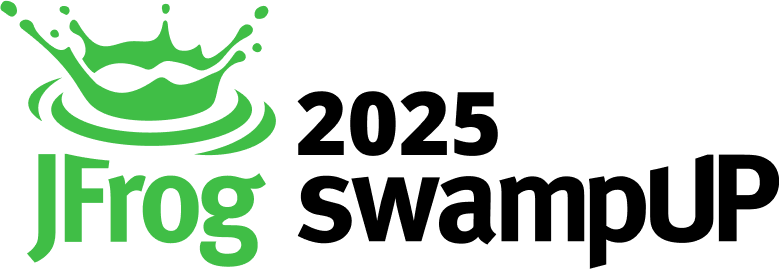Manage AI and Software Artifacts at Scale
Ensure developers have uninterrupted access to
trusted, governed software artifacts to drive automation globally.

Artifact management the way it should be
Manage every artifact and release
in a single place
40+ natively supported package and file types
100s of ecosystem integrations
Multiple installation and deployment options
Effortlessly scale your SDLC
across multiple sites
Automated bi-directional repository sync
Control access to all services from one location
Project-based resource management
Managed, multi-cloud, hybrid, and Self-Hosted deployment support
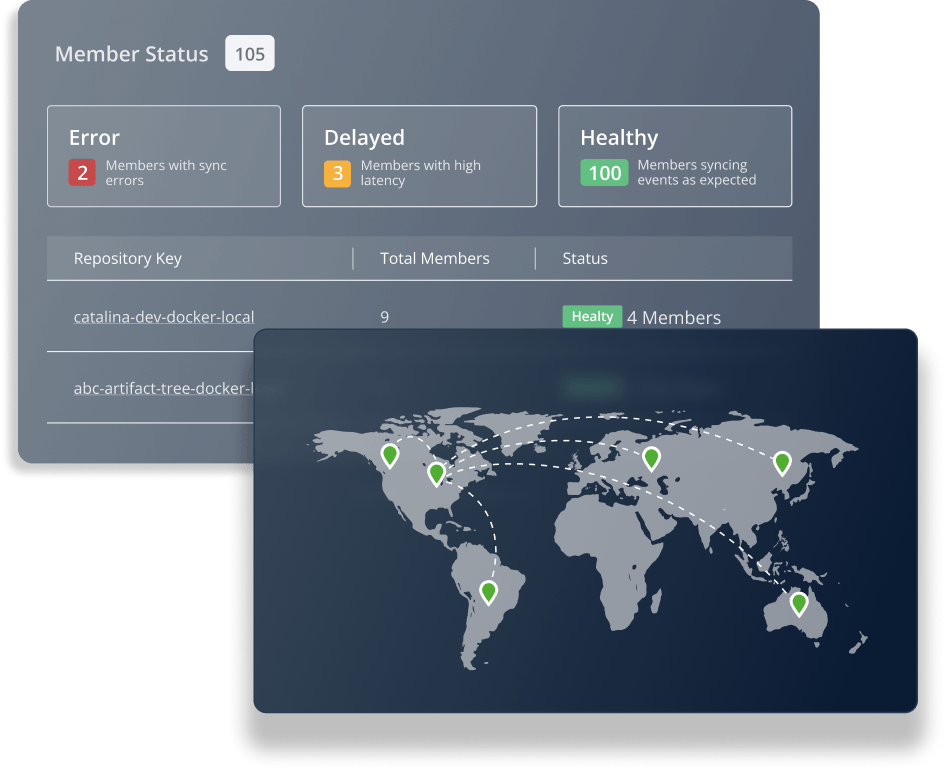
Lay the foundation for a secure software supply chain
Proxy public registries, preventing direct download from internet
Robust RBAC and governance policies
Enterprise platform security (SSO, PrivateLink, etc.)
Identify and block vulnerable packages from use
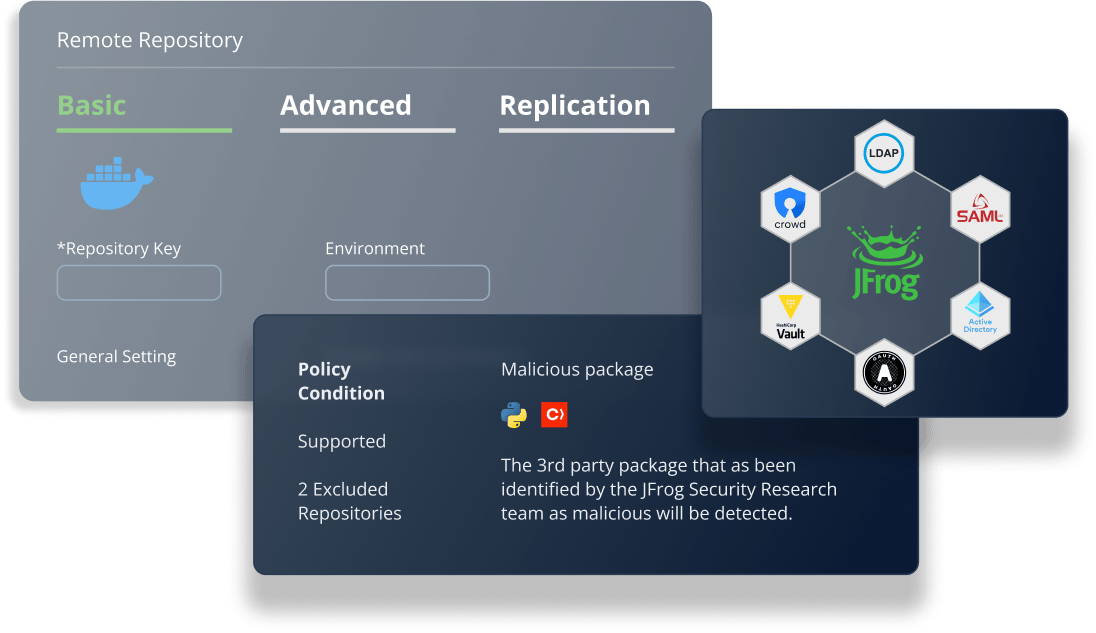
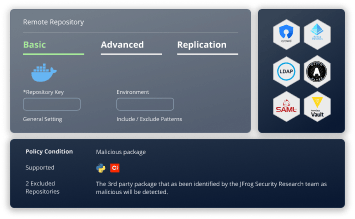
Improve build speeds and
accelerate CI/CD pipelines
Dependency and build caching
Open-source JFrog CLI
Rest APIs for nearly everything
Custom plugins with robust event triggers
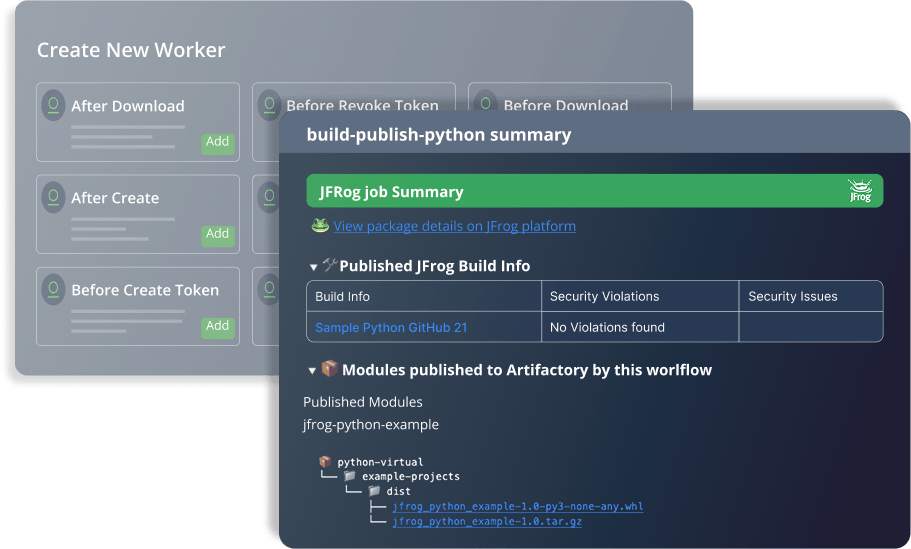
Deliver enterprise performance while optimizing costs
Checksum optimized storage and replication
Automated cleanup and asset archival
Location based DNS routing
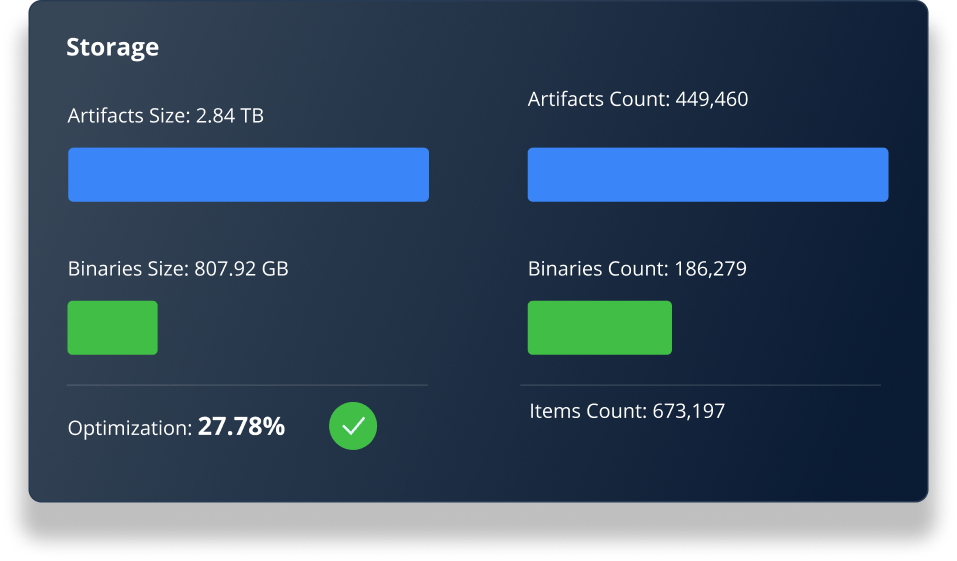
Manage every artifact and release
in a single place
40+ natively supported package and file types
100s of ecosystem integrations
Multiple installation and deployment options
Effortlessly scale your SDLC
across multiple sites
Automated bi-directional repository sync
Control access to all services from one location
Project-based resource management
Managed, multi-cloud, hybrid, and Self-Hosted deployment support

Lay the foundation for a secure software supply chain
Proxy public registries, preventing direct download from internet
Robust RBAC and governance policies
Enterprise platform security (SSO, PrivateLink, etc.)
Identify and block vulnerable packages from use


Improve build speeds and
accelerate CI/CD pipelines
Dependency and build caching
Open-source JFrog CLI
Rest APIs for nearly everything
Custom plugins with robust event triggers

Deliver enterprise performance while optimizing costs
Checksum optimized storage and replication
Automated cleanup and asset archival
Location based DNS routing

Over 7,500 DevOps Teams Trust JFrog
Bring ML models into your secure software supply chain
Proxy Hugging Face and Nvidia NGC
Manage private models with a simple SDK
Model scanning via JFrog Xray
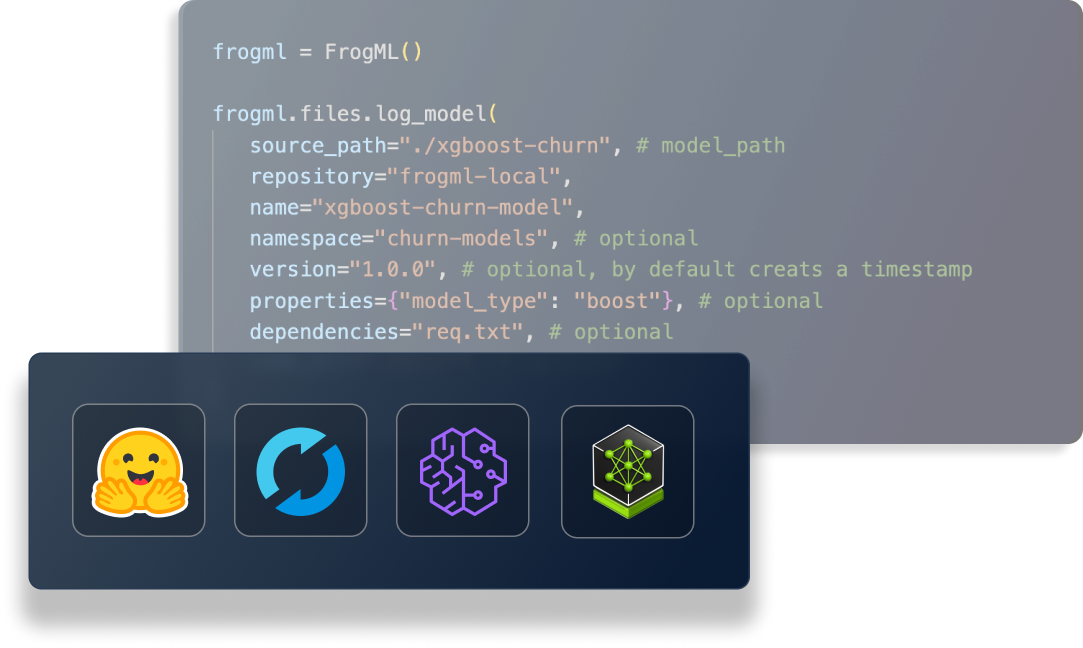
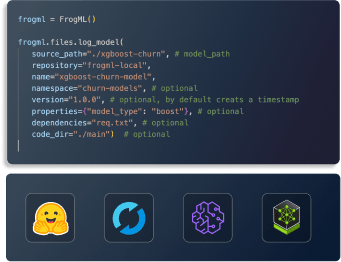
Simplify auditing and governance with release lifecycle management
Immutable release context, tracking, and auditing
Security policy and promotion gating
Attestation and evidence capture
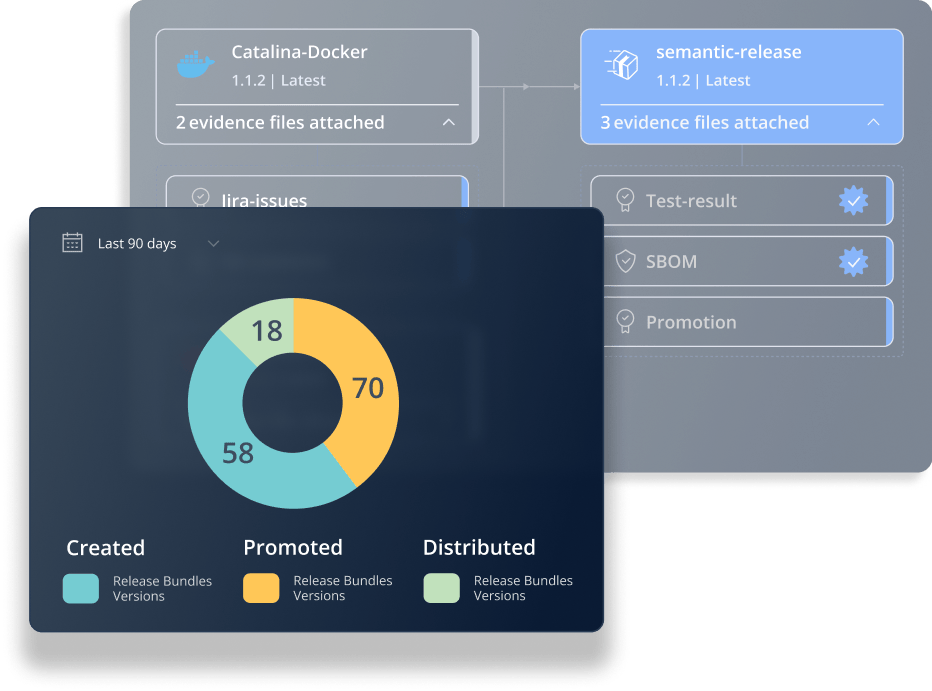
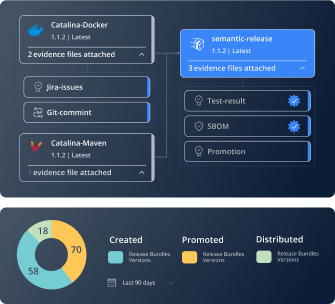
Supercharge your developer experience
Powering enterprise software development lifecycles
and create visibility into your development teams.
Curated Artifacts
The Trusted Source for
Curated Artifacts
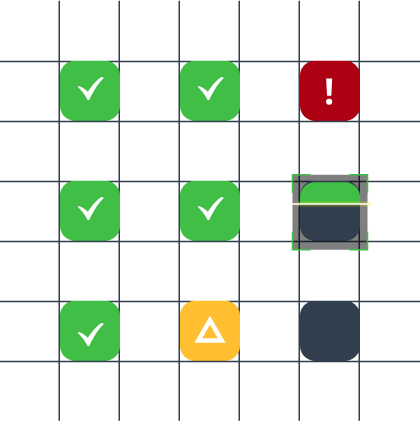
Enhance the Integrity, Reliability, and Speed of CI/CD

Ensure Constant Shared Access for Distributed Teams
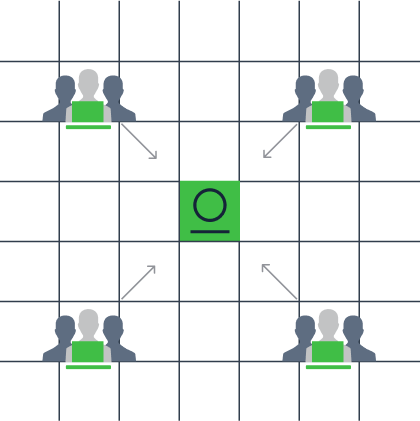
Serve Components to Production Runtimes
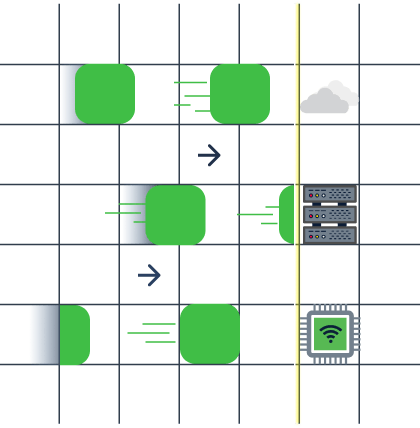
Additional JFrog Artifactory Resources
Frequently Asked Questions
Artifactory is universal, meaning it supports a wide variety of package formats and file, including Maven (Java), npm (Node.js), PyPI (Python), Docker, Helm, NuGet (.NET), Debian, RPM, Terraform, ML Models, and many more.
The method for uploading depends on the package type. Typically, you'll use command-line tools specific to your package manager (like ‘npm publish’ for npm) configured to point to your Artifactory repository. Artifactory also provides a web interface for manual uploads.
Similar to uploading, downloading depends on the package type. Your build tools or package managers will be configured to resolve dependencies from your Artifactory repositories. For example, a Maven project will declare dependencies in its pom.xml file, and Maven will download those artifacts from the configured Artifactory repository.
Yes, Artifactory is designed to integrate seamlessly with popular CI/CD tools like Jenkins, GitHub Actions, Azure DevOps and many more. This integration allows for automated artifact resolution and deployment as part of your build and release pipelines.
Artifactory offers robust access security features, including user and group management, permission control (read, write, delete), and integration with external authentication systems (like LDAP or SAML). This allows you to control who can access and modify your artifacts. The JFrog Platform also provides end-to-end application and software supply chain security solutions natively integrated with Artifactory. With JFrog Artifactory security professionals have one place to security policies and govern the usage of software components across dev teams.
Artifactory helps streamline your software development process by providing a single source of truth for all your artifacts. This improves collaboration, ensures consistency, speeds up builds, and makes it easier to manage dependencies and track software releases.
Yes, JFrog SaaS provides our cloud-native platform as a hosted and managed service available on your choice of AWS, Azure and GCP regions.
Yes, Artifactory provides Docker and OCI registries that allows you to store and manage your container images securely. It also manages Helm Charts, Terraform/Open Tofu files, Ansible and more to make it easy to deploy to dynamic runtime environments.
Yes, Artifactory is an advanced Model Registry. It supports caching models from Hugging Face and also manages in-house built custom models.
Yes, all JFrog products including Curation, Xray, and JFrog ML are natively integrated with Artifactory as part of the JFrog Software Supply Chain Platform
Artifactory provides robust options to power automation across your pipelines including APIs across the platform, the JFrog CLI, and Terraform provider.


